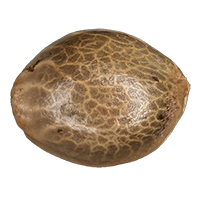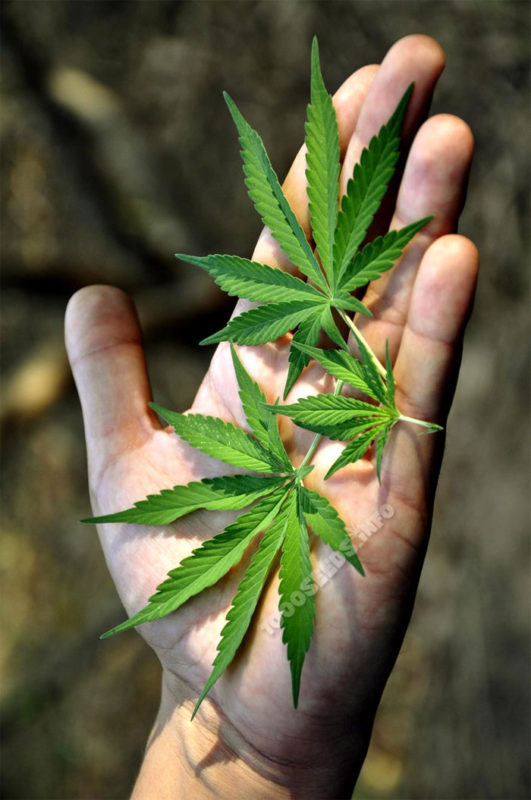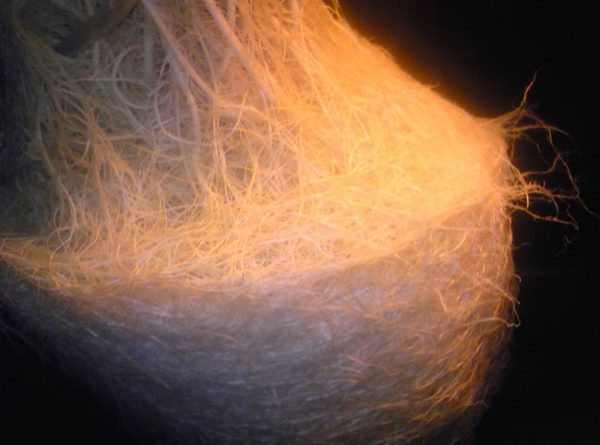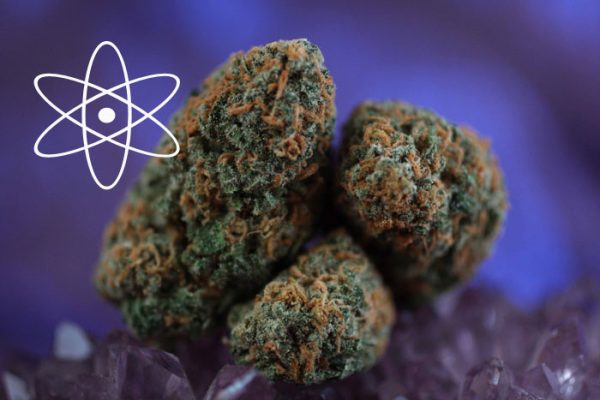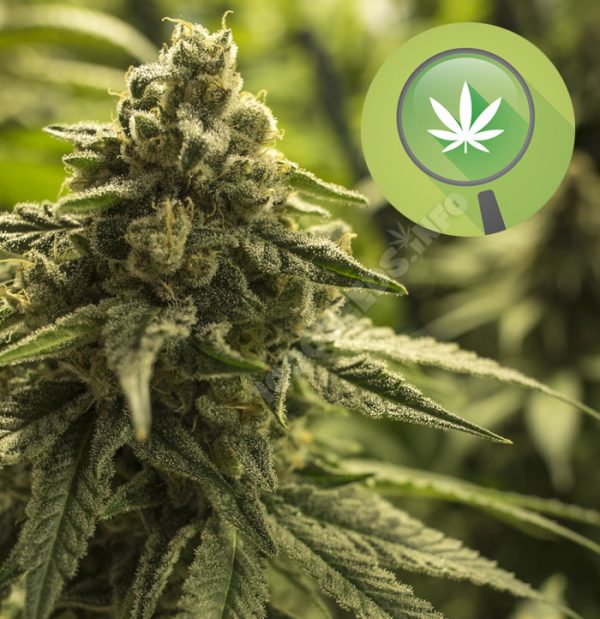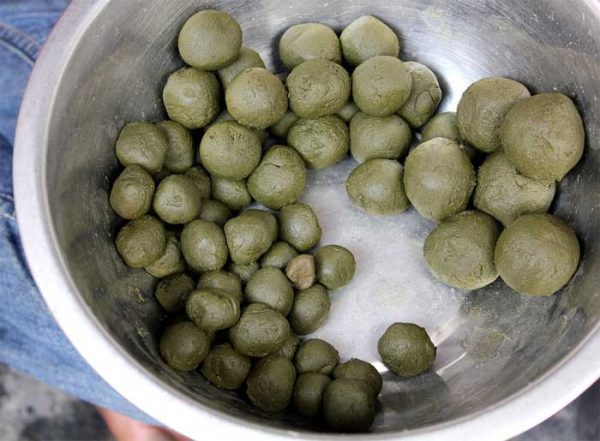The medicinal excellence of cannabis has been attracting increasing attention for some time. Several states in the U.S. and countries around the world have now successfully legalized medical marijuana. Uruguay became the first country in the world to create a legal market for cannabis. This news points in a good direction, because the benefits of medical cannabis are extremely great as numerous medical and scientific studies can prove. There are still arguments against the use of cannabis, especially in psychiatric journals, even though there is no scientific evidence, especially convincing evidence, that marijuana is harmful to human health or actually causes psychiatric disorders.
When we look into the science behind cannabis and the latest findings, we realize the overwhelming benefits that cannabis treatments can bring. The negative stigma of cannabis is probably related to the psychotropic effects of the plant. The fact that because of this a medicinal plant has been declared to be the devil's stuff and a destructive drug has more to do with myths, possibly political and economic interests of certain people and possibly socio-cultural backgrounds than with an actual scientifically provable reality.
Now cannabis is the focus of much medical research as a potential therapeutic treatment and even cure for cancer. Cannabis is a good example of how the human mind is programmed and conditioned to believe something that is repeated over and over again. From an early age, the population has been told cannabis is bad and it has been mixed with other drugs without really distinguishing between individual substances.
Let's take a look at the science behind cannabis and cancer. Cannabinoids can help fight cancer. Cannabinoids activate the body's cannabinoid receptors. Our bodies also create so-called endocannabinoids themselves, which play an important role in the body's immune system regeneration and various processes.

Cannabinoids are found in both hemp and cannabis. Hemp is usually referred to as strains that contain only 0.3% THC, while cannabis is usually referred to as strains that contain 0.4% or more THC. Botanically, both are Cannabis Sativa strains. Cannabinoids have been shown to reduce cancer cells as they have a great impact on immune system regeneration, among other things. Not all strains are equally suitable and show the same effects, but it has been observed many times how cancer patients were able to successfully treat the disease with cannabis and in this context there was a reduction of cancer cells.
Below we briefly present 20 studies that show that cannabis and its cannabinoids are an effective treatment for cancer patients and medical marijuana can even help cure cancer:
Brain tumor
1. Study published in the British Journal of Cancer, conducted by the Department of Biochemistry and Molecular Biology at the Complutense University of Madrid.:
In this study, tetrahydrocannabinol (THC) and other cannabinoids were shown to inhibit tumor growth. It was the first clinical study to evaluate cannabinoids and their antitumor effects. The administration of cannabinoid was safe in this study and was also achieved with no psychoactive effect. THC was able to reduce tumor cells in two of nine patients.
2. A study published in the Journal of Neuroscience, examined the biochemical events in both acute neuronal damage and slowly progressive neurodegenerative diseases. The longitudinal magnetic resonance imaging study showed that THC (a main active ingredient in cannabis) is able to reduce neuronal injury in rats. After 7 days, 36% less neuronal damage was observed in treated rats compared to control animals. The results of the study further suggest that the endocannabinoid system in the body protects the brain from neurodegeneration.
3. A study published in the Journal of Pharmacology and Experimental Therapeutics., showed that cannabinoids have an antitumor property. This study examined the effect of cannabidiol (CBD, non-psychoactive cannabinoid compound) on human glioma cell lines. Cannabidiol (CBD) administration resulted in a significant decrease in glioma cell viability. Glioma is the collective term for some brain tumors of the central nervous system. The study found that cannabidiol can produce significant antitumor activity.
4. A study published in the journal Molecular Cancer Therapeutics outlines, the high resistance of brain tumors to current anti-cancer treatments. Therefore, it is crucial that new therapeutic strategies are found to help affected patients with the poor prognosis so far and to achieve an improvement in the disease. The study showed that treatment with TMZ (= benchmark agent for the management of GBM) and submaximal doses of THC and CBD can produce a potent antitumor effect in both TMZ-sensitive and TMZ-resistant tumors. Overall, these results demonstrated that the combined administration of the drug TMZ and cannabinoids could be exploited therapeutically for the effective treatment of brain tumors.
Breast Cancer
5. A study published in the U.S. National Library of Medicine., conducted by the California Pacific Medical Center, found that the cannabinoid cannabidiol (CBD) reduces the growth of breast cancer cells and the spread of these cells.
CBD was also shown to significantly reduce tumor mass.
6. A study published in the Journal of Pharmacology and Experimental Therapeutics, found that both THC and cannabidiol (CBD) can dramatically reduce breast cancer cell growth. This study also confirmed the efficacy and effectiveness of these cannabis compounds.
7. A study published in the journal Molecular Cancer, showed that THC can reduce tumor growth and numbers. It found that cannabinoids inhibit cancer cell proliferation, cause preprogrammed cell death of cancer cells, and suppress tumor angiogenesis. Tumors require an adequate supply of oxygen and nutrients to grow. This demand cannot be met from surrounding tissues, especially in fast-growing and cell-rich tumors. Therefore, tumors induce new blood vessel formation (angiogenesis) through which they meet their supply needs. Cannabinoids can inhibit exactly this, as the study demonstrated.
This study provides strong evidence of benefit from cannabinoid-based therapies for the treatment of breast cancer.
8. A study published in the Proceedings of the U.S. National Academy of Sciences (PNAS), has found that cannabinoids can inhibit the cell growth of breast cancer cells.
Lung cancer
9. A study published in the journal Oncogene by the Harvard Medical Schools Experimental Medicine Dept. found that THC inhibits epithelial growth factor, which causes cell migration of a lung cancer. Based on these findings, THC is being investigated as a new effective ingredient in the treatment of certain cancers of the lung and metastatic disease.
10. A study published in the US National Library of Medicine by the Institute of Toxicology and Pharmacology, from the Department of General Surgery in Germany found that cannabinoids inhibit cancer cell invasion and metastasis. The cannabinoid CBD was the focus of this study.
11. A study published in the U.S. National Library of Medicine by Harvard Medical School examined the role of cannabinoid receptors in lung cancer cells. The study concluded that CB1 and CB2 receptors may serve as new targets (treatment targets) for inhibiting non-small cell lung cancer cell growth and metastasis in the future.
Prostate Cancer
12. A study in the US National Library of Medicine shows a decrease in prostate cancer cells due to the action of cannabinoid receptors. The strong anti-proliferative and cytotoxic effects of anandamides (endocannabinoid, endogenous cannabinoid) on metastatic prostate cancer cells could be the basis for new therapeutic and effective treatments for recurrent and invasive prostate cancers, the study shows.
13. A study published in the U.S. National Library of Medicine, outlines several studies showing the effectiveness of cannabis on prostate cancer. The researchers conclude that it is of interest to conduct clinical trials with medical cannabis or other cannabinoid agonists. Patients could additionally benefit from analgesia of bone pain, improvement in quality of life while reducing the risk of addiction from certain medications and prevention of opioid addiction with the help of cannabis/cannabinoid treatment.
14. Another study published by the U.S. National Library of Medicine concluded that clinical review of CBD against prostate cancer is a must. Cannabinoid receptor activation induces prostate cancer cell apoptosis (i.e., the suicide program of individual cancer cells). They found that cannabidiol (CBD) significantly inhibited the viability of these cancer cells.
Blood Cancer
15. A study published in the journal Molecular Pharmacology, showed that cannabinoids cause growth inhibition and apoptosis (cell death) in cell lymphomas. The study was supported by grants from the Swedish Cancer Society, The Swedish Research Council and the Cancer Society in Stockholm.
16. A study published in the International Journal of Cancerhas determined and shown that cannabinoids possess antiproliferative (anti-proliferative) and pro-apoptotic (cancer cell killing) effects in various types of cancer and in mantle cell lymphoma.
17. A study published in the U.S. National Library of Medicine by the Department of Pharmacology and Toxicology, from Virginia Commonwealth University found that cannabinoids can induce apoptosis in leukemia cells, i.e., destroy leukemia cells.
Oral cancer
18. A study published in the U.S. National Library of Medicineproves that cannabinoids are toxic for highly malignant oral tumors.
Liver cancer
19. A study in the US National Library of Medicine has found that THC reduces the viability of human HCC cell lines (liver carcinoma cell line) and their growth.
Pancreatic Cancer
20. A study published in the American Journal of Cancer has found that cannabinoid receptors are present at much higher levels in human pancreatic tumor cell lines and tumor biopsies than in normal pancreatic tissue. The study showed that cannabinoid administration induces apoptosis of cancer cells, prevents tumor cell growth and pancreatic tumor cell spread.
medical cannabis strains with a lot of CBD
 MediX (Cannamed)
MediX (Cannamed)
- 15% THC
- 15% CBD
- analgesic, relaxant, antispasmodic
- invigorating, mood-lifting
- 8-9 weeks flowering time
- 550g/m²
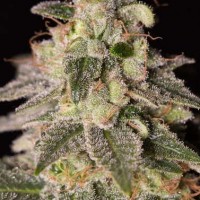 Shark Shock CBD (Dinafem)
Shark Shock CBD (Dinafem)
- THC : CBD 1:1
- 6% CBD
- 6% THC
- 80% Indica / 20% Sativa
- Flowering Indoor: 55 days
- Yield: 500 g/m²
- much resin
<<mehr medizinische Sorten mit viel CBD >>
medical cannabis strains with a lot of THC
 Canadian Kush (medical Seeds)
Canadian Kush (medical Seeds)
- 25% THC
- Very low tolerance development
- for the evening and the night
- Sleep-inducing and muscle-relaxing
- large resin content, ideal for concentrates
- 550 g/m²
- 60 days flowering / beginning of October
 Big Juana (Cannamed)
Big Juana (Cannamed)
- 28.22% THC
- 3% CBD, 0.5% CBC and 0.8% THCV
- relaxing and stimulating at the same time
- Crohn's disease, chronic inflammation and neural pain.
- 500g/m², 1000g/plant
- 80 days flowering / early November
<<mehr Cannabis Sorten mit viel THC >>
<<mehr zum Thema Cannabis als Medizin>>
 Medical exclusion clause
Medical exclusion clause
The information on this website is for general information purposes only and is not to be equated with medical or legal advice. We do not want to encourage anyone to consume or use drugs illegally. Please consult your doctor/health care provider before using any products/methods referred to or linked to on this website.


